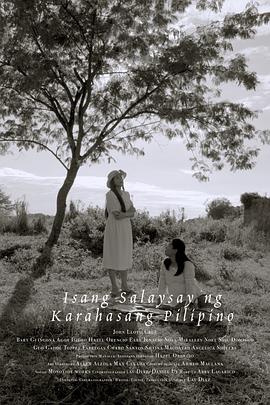
Servando Magdamag
简介
The Philippines, 1974: as Marcos’ oppressive regime becomes increasingly entrenched after he imposed martial law in 1972, Servando Monzon III, heir to his powerful clan’s hacienda and family business, refuses to capitulate to the dictator’s plans to control the country. In this adaptation of Ricardo Lee’s short story and screenplay Servando Magdamag, Lav Diaz, the unrelenting and incisive prober of Philippine history’s shadowy areas, offers a film of epic proportions. The aim, as unequivocally indicated by the title, is nothing less than to scrutinise Filipino violence and explore its roots from Spanish colonisation to the present day. Feudalism and power struggles are closely examined. Borne aloft by a remarkable cast – John Lloyd Cruz in the main role is a huge television and film star in the Philippines – this “sine novela”, according to the opening credits, mixes up the codes of the telenovela with Lav Diaz’ ostensibly very different filmmaking. The story unfolds of the mutual relationships of a profusion of characters over time, shot in the sumptuous black and white that is now the stuff of most of his movies. The filmmaker himself frames these magnificent shots that stretch out, sensuous experiences of living tableaux attentive to the bodies set in a place as well as to the languages used, to the inner movements and down-time. In this film that’s both a tragic saga set in the past and the tale of an “endless nightmare”, Diaz takes on a dual allegorical dimension – the figures of the philosopher and the blind man – and an informative one, like the revolutionary education meetings that pepper the story. This “tale of violence” is also an epic with very contemporary resonances, as the recent election to the presidency of another Marcos, a devoted son of the previous president, reminds us. (Nicolas Feodoroff)
源自: